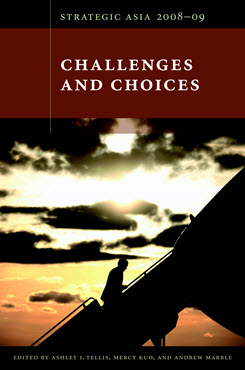Managing China as a Strategic Challenge
This chapter evaluates the impact of China’s rise on key areas of U.S. concern over the last eight years and suggests future policy options for the next administration.
EXECUTIVE SUMMARY
This chapter evaluates the impact of China’s rise on key areas of U.S. concern over the last eight years and suggests future policy options for the next administration.
MAIN ARGUMENT
Though the U.S. and China have been cooperating to improve economic relations, combat terrorism, counter nuclear proliferation, and mitigate nontraditional security threats, the two states are also strongly involved in efforts to hedge against one another in ways that could lead to regional instability. Washington’s ability to protect key areas of concern will require fashioning sophisticated policy approaches to Beijing that both enhance mutual incentives for positive-sum outcomes and avoid political manipulation by domestic groups in both countries.
POLICY IMPLICATIONS
- The U.S. can neither afford nor will likely gain from a policy of sharp confrontation, public criticism, and high pressure designed to “compel” Beijing to cooperate more or to capitulate on issues.
- The U.S. would benefit from maintaining a steady focus on dialogue and negotiation with China, accompanied by persistent efforts to deter, dissuade, reassure, and enmesh.
- Also of benefit would be if the U.S. clarified its preferential type of security architecture in the Asia-Pacific and worked with China and other Asian powers to build such an architecture.
- Gaining support from domestic constituencies in the U.S. for a more constructive relationship with China would be more likely if the next administration were to explain more fully why such a relationship is in the interest of the U.S.
Strategic Asia
The Strategic Asia annual edited volume incorporates assessments of economic, political, and military trends and focuses on the strategies that drive policy in the region. Learn more about Strategic Asia.


